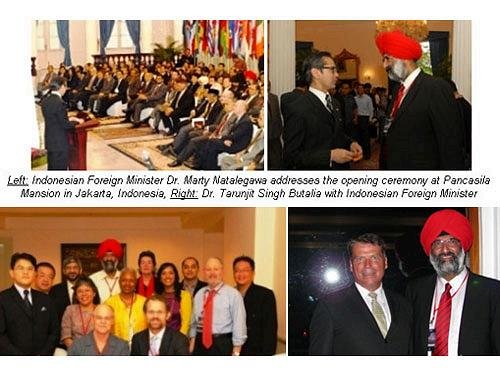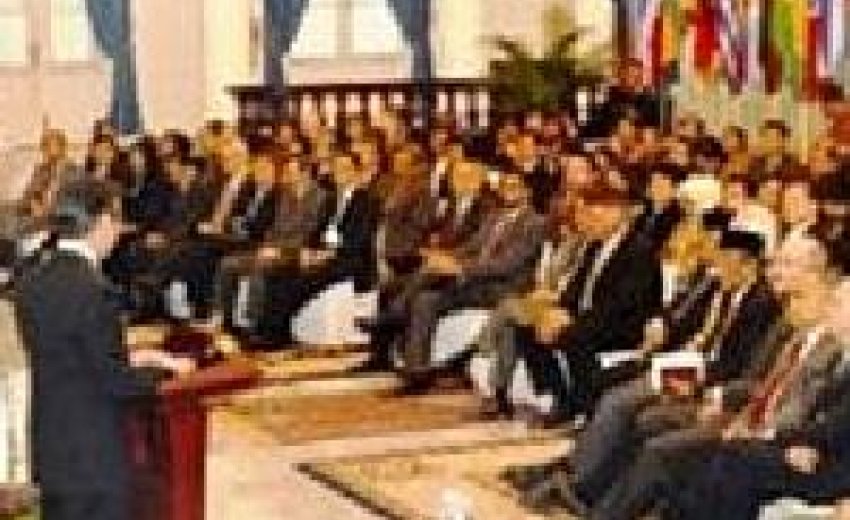The World Sikh Council – America Region (WSC-AR) participated in a landmark US-Indonesia bilateral interfaith conference in Jakarta, Indonesia sponsored by the governments of the United States of America and Republic of Indonesia.

The conference was one of the steps undertaken by the US government to promote and foster multi-religious cooperation since President Barack Obama’s historic speech in Cairo, Egypt last year. Indonesia was chosen as the location for this first-of-its-kind interfaith cooperation forum because of its diverse society and its constructive models for building collaborative communities.
The meeting was facilitated by Religions for Peace, the world’s largest and most representative multi-religious coalition for peace.
Dr. Tarunjit Singh Butalia, Chairperson of WSC-AR’s Interfaith Committee represented WSC-AR at the meeting held in Jakarta, Indonesia, January 25 to 27, 2010. The meeting was attended by about 20 senior US religious and civil society representatives, 20 senior Indonesian religious representatives, and 10 religious leaders from South-East Asian countries.
The three-day consultation titled “Building Collaborative Communities: Enhancing Cooperation Among People of Different Faiths” focused on four key areas of development: poverty, climate change, education, and good governance.
At the conference, Dr. Butalia, also Moderator of Religions for Peace – USA, served as Rapporteur for a working group on poverty and climate change as well as a member of the Action Plan Committee.
At the end of the conference, the Jakarta Declaration (prepared by the Action Plan Committee) was unanimously adopted. It declares that “We—religious leaders and other civil society actors from the Republic of Indonesia and the United States of America—are committed to taking common action on urgent challenges that confront us all. These challenges respect no borders. They leave us, finally, only as secure as the least secure among us.
Even as we acknowledge our own complicity in and responsibility for these challenges, we are motivated by our respective diverse religious and other heritages which also tell us that we can and must act together… We are committed to working together across religious communities, with other civil society actors, and with governments in program partnerships… We commit ourselves to a joint process to frame an agenda for future actions.”
Mr. Ari Alexander, Representative of the US White House Office of Faith-Based and Neighborhood Partnerships said in his closing remarks at the conference that “Here in Jakarta, it has been my great privilege to have the opportunity to observe people from many different faiths and many different nations discuss how to work together towards poverty eradication; how to collaborate to respond to climate change; how to educate our societies for mutual respect, and how to foster good governance.
Bearing witness to these conversations is a critical component of the US Government’s commitment to promoting interfaith cooperation… We would like to see more faith leaders become interfaith actors. The challenges that confront our world are too great for us to address in our separate communities. We must act together.”
“The Jakarta conference was a unique opportunity for religious and civil society representatives to envision a new future of multi-religious cooperation and action between our two nations based on mutual respect for religious differences” said Dr. Tarunjit Singh Butalia. “Our commitments to work together in moving from dialogue to action are exemplary and we look forward to working with each other in realizing these goals.”

